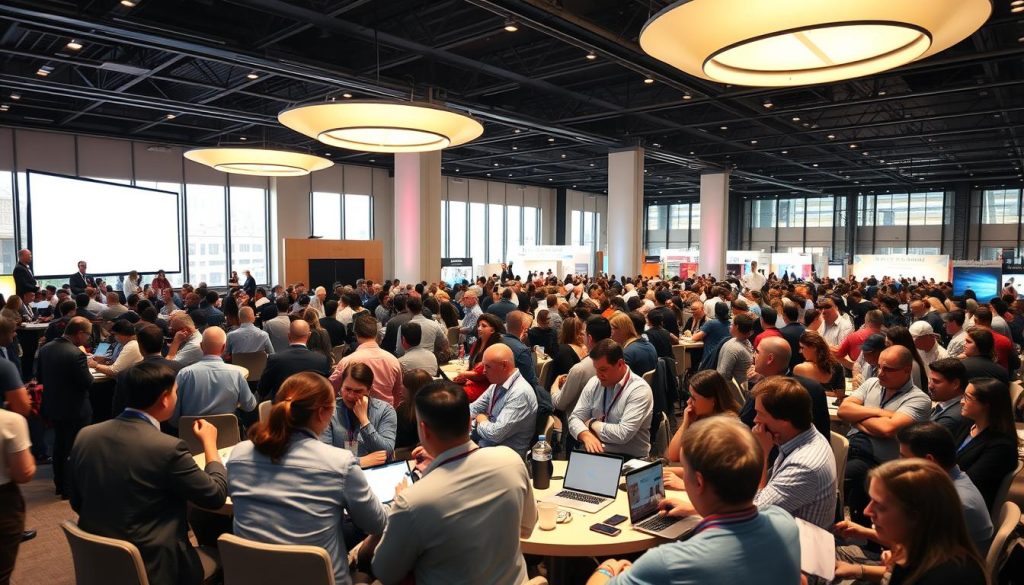Europe’s long tradition of professional groups shapes how independents find support today. Shared purpose and reciprocity have helped professionals for years, and they still fuel development and practical change.
This list maps the most influential communities across the continent, from EU-level advocacy groups to national bodies and local hubs. It is especially useful for readers in France who are exploring cross-border opportunities.
We separate past drivers that shaped policy from present networks that back daily practice and skill growth. Expect examples of membership models, programs, and research-backed insights to guide real choices.
Evidence and experience matter: governance, funding, and clear value propositions explain why some groups thrive while others fade. This guide uses that dual lens — long-term policy and immediate business help — so you can plug into the right community at the right stage of your career.
Table of Contents
Key Takeaways
- Europe’s professional groups combine advocacy and practical services.
- National and EU-level bodies differ from community hubs that offer daily support.
- Evaluate membership by governance, funding, and clear benefits.
- Use examples and programs in this guide to compare options.
- Policy work matters for long-term change; local resources help today.
Why freelance industry associations matter for professionals across Europe
When professionals join together, they turn individual hassles—taxes, procurement, social protection—into shared priorities and solutions.
Collective voice wins attention from regulators and clients. That influence changes the rules that affect daily work across borders.
Members gain clear benefits: advocacy on regulation, practical templates, and curated events that often lead to clients and new skills.
- Visibility and referrals through active engagement.
- Tools and guidance to ease compliance and pricing.
- Opportunities to contribute, build reputation, and win tenders abroad.
Like a gym, results come from steady participation. Over years, hands-on involvement turns experience into speaking slots, partnerships, and co-created projects.
« Joining a community with a clear purpose accelerates growth more than going it alone. »
French freelance professionals should tap EU and neighbouring networks to access regional work and reduce friction in daily business.
Understanding the landscape: associations vs independent communities
Formal organisations and grassroots communities both support professionals, but they work differently. Organisations use defined governance and management to lobby at EU and national levels. They coordinate complex stakeholders and pursue long-term policy change.
Independent communities move fast. They focus on peer support, niche goals, and quick experimentation. That agility helps members solve problems today and test new formats or services.
Lobbying and policy advocacy at EU and national level
Structured bodies follow clear advocacy workflows: early-stage input on proposals, position papers, public consultations, and meetings with officials. This step-by-step approach can shape regulation at each level.
Education, training, and continuous professional development
Education paths include masterclasses, modular training, and continuous professional development to keep knowledge current. These programmes often map to market needs and credentialing over years.
Networking, events, and job sharing
Communities host local meetups, virtual summits, and job-sharing sessions. Consistent programming over years builds trust and practical experience among members.
Resources, tools, and member services
Services range from directories and rate guides to templates and curated media feeds. Reliable research helps quantify trends and measure program outcomes so leaders can prioritise action.
| Feature | Structured organisation | Independent community | Best for |
|---|---|---|---|
| Governance | Formal boards and bylaws | Loose volunteer management | Policy influence |
| Speed | Slower, consultative | Fast, experimental | Practical solutions |
| Services | Research, position papers, large programmes | Workshops, peer help, niche tools | Systemic change vs immediate help |
| Scale | National / EU level | Local or thematic | Regulation vs community building |
« For immediate clients and skills, pick a peer community; for wider rules and standards, back a structured organisation. »
Choose based on needs: if you want clients and practical knowledge now, join a community. If you aim for systemic outcomes and standards, engage with a structured body. French professionals often benefit from both.
Freelance industry associations: definition, purpose, and membership benefits
Member-run organisations act as intermediaries, translating the needs of professionals into practical guidance for clients and officials.
What they are: Defined as member-led bodies, these groups serve freelancers, other professionals, end-user clients, and sometimes public authorities tasked with opening procurement access.
Who they serve
They support solo workers and the companies that hire them. Public authorities also rely on them for input when designing fair contracting rules.
Typical membership benefits
Members gain:
- Research reports and market data to benchmark rates and demand.
- Policy updates, insights briefings, and timely advice.
- Events, workshops, and shared toolkits that save time and help win work.
- Introductions to potential clients and guidance on cross-border compliance.
Why people renew: Clear membership benefits at the right moment—templates for contracts, guidance on rates, or signposting to funding—drive retention.
« Good advice and useful tools at a critical moment change membership from a cost to a catalyst. »
Associations collect and publish data to shape advocacy and member choices, while peer networks fill day-to-day needs. Compare membership tiers and engagement levels before joining so your spend matches expected outcomes.
Spotlight on the EU Affairs Freelancers Association (EAFA)
EAFA was unveiled at the European Parliament on 14 January 2013 to represent independent EU affairs professionals and to raise the profile of self-employment in policymaking.
Origins and mission
EAFA’s mission is to promote the value of self-employment to European policymakers. Over the years it has built experience coordinating EU-level advocacy for independents.
Core objectives
- Awareness: campaigns and media outreach to improve visibility.
- Lobbying: advocating fair, practical regulation at EU level.
- Scale up: leadership, research, and best-practice projects for continuous development.
- Finance: secure EU funding for pilot projects and platforms.
How EAFA engages regulators
EAFA uses position papers to set out recommendations. It issues quarterly EAFA Alerts with policy updates, tenders, and consultations.
Ad hoc working groups pull together national representatives and clients to feed timely input into the process.
Membership and governance
The organisation is governed by a Management Board, a General Assembly that meets twice yearly, and an Advisory Council elected annually. This structure keeps members represented and accountable.
« EAFA offers a trusted channel into Brussels for national groups and end-user clients. »
Benefits: liaison with EU institutions, shared assignments, online toolboxes, tax and accountancy guidance, access to agency lists, and greater visibility for projects. EAFA’s team also works with allied networks to scale pilots and funding—especially useful for French organisations seeking compliant EU pathways.
Advocacy in action: how EU-level engagement has shaped freelancer policy
EU-level engagement turns proposals into practical rules that reflect how independents actually work across borders. Early, targeted input helps make directives workable for those delivering cross-border services.
Early-stage input into EU directives and frameworks
By contributing timely research and clear evidence, a freelancers association can shape definitions and thresholds while a proposal is still flexible. EAFA has fed into initiatives such as the Directive on the Recognition of Professional Qualifications, the Small Business Act, the Entrepreneurship 2020 Action Plan, the EU Qualifications Framework, and the Services in the Internal Market Directive.
Building multi-stakeholder alliances to amplify impact
Alliances pool sector knowledge and spread effective measures across Member States. That collective voice reduces friction for cross-border work and helps institutions treat independent contracts alongside SME needs.
- Practical tools: recurring EAFA Alerts, iterative position papers, targeted meetings, and rapid member responses to consultations.
- Proof of concept: pilot projects use EU funding to collect concrete data and show feasibility for procurement access or training recognition.
Lessons from several years of experience show that steady, evidence-based engagement builds trust. French organisations should join coalitions early to supply sector insight and help shape national transposition.
Comparing models: European advocacy vs U.S. service-driven unions
Across the Atlantic, support groups bundle immediate services while Europe leans into long-term advocacy.
In the U.S., the Freelancers Union mixes practical offers with organising to deliver quick value.
What the Freelancers Union provides
Health and benefits access: curated insurance options and retirement guidance help members manage risk.
Rights hub: an interactive map explains state rules such as misclassification, paid leave, and the Freelance Isn’t Free Law.
Events and content: workshops, clear educational material, and branded merchandise build identity and raise funds.
Lessons Europe can adapt
Bundling services alongside policy work can show immediate benefits and increase retention.
- Offer pilots with insurers or platforms to test voluntary benefits.
- Use strong media and clear content to mobilize members and businesses.
- Pair advocacy with visible tools to translate long-term goals into daily gains.
| Feature | U.S. model | European model |
|---|---|---|
| Primary focus | Deliver immediate benefits | Shape policy and standards |
| Management | Administers benefits at scale | Coordinates campaigns and research |
| Member appeal | Direct benefits and identity | Long-term systemic change |
« Members stay when they see help today and change tomorrow. »
For French groups, a hybrid path makes sense: keep strong advocacy and pilot bundled services to meet urgent needs without losing policy focus.
Independent communities that power freelance careers across Europe
Small communities plug practical gaps with directories, coaching, and regular meetups. They offer a wide range of support: learning tracks, peer accountability groups, and curated resource lists.
Many of these groups are grassroots and volunteer-led. Longevity often depends on clear value and recurring programming built over years of experience from organisers and contributors.
Note that some communities sunset. Look for transparent roadmaps, published calendars, and healthy leadership handovers before you commit.
Mix your memberships: pair EU-level advocacy with nimble community participation to cover both systemic needs and day-to-day business support. The Freelance Business Community is a good example, offering masterclasses and publications focused on global skill growth.
| Service | What to expect | Why it matters |
|---|---|---|
| Directories | Curated lists and profiles | Find clients and partners across borders |
| Learning tracks | Workshops and masterclasses | Fast skill development and applied knowledge |
| Peer groups | Accountability and referrals | Practical leads and steady growth |
For professionals in France, pick cross-border communities that offer bilingual content and client introductions. Your results scale with contribution—share leads, help moderate, and give feedback to deepen ties.
Want guided skill tips? Check this resource on skill development to combine community learning with practical steps.
Freelancing.eu — EU-wide hub for directories, meetups, and insights
Freelancing.eu is an EU-wide community hub that combines a searchable directory, curated news, and regular meetups to help professionals find collaborators and clients.
The platform runs on membership. Members pay an annual fee of 199 EUR for full access to listings, exclusive events, and resource bundles. It suits those seeking cross-border visibility and vetted services.
The directory and its data help speed validation. Clients and partners can shortlist profiles quickly using verified credentials, portfolios, and ratings.
Event rhythm is steady: monthly meetups, quarterly knowledge sessions, and ad hoc project mixers. These gatherings encourage repeat introductions and practical collaboration.
Social media and newsletters extend reach across wide geographies, making discovery easier between cities and Member States.
- Tip for French professionals: complete profiles in English and French, link portfolios, and ask questions during event Q&As.
- Try events first; then weigh ROI by whether 1–2 wins cover the annual fee.
| Feature | What you get | Ideal for |
|---|---|---|
| Directory | Verified profiles and portfolio links | Cross-border visibility |
| Events | Monthly meetups & workshops | Networking and shortlists |
| Outreach | Newsletters & social media amplification | Discovery across Member States |
« Freelancing.eu lowers the friction to start projects quickly by connecting verified profiles and active events. »
IPSE — UK advocacy, protections, and member services for independents
IPSE positions itself as a UK organisation that blends practical services with policy work. It is useful for French professionals who take on UK clients and need both compliance help and market access.
What IPSE offers: templates and contract toolkits, marketplace access, illness and jury service cover, networking events, and lobbying support that clarifies changing rules.
Members receive regular communications and media updates that flag regulatory shifts and best practices. These bulletins help you adapt contracts and pricing quickly when UK guidance changes.
Sustained membership over years builds real experience. Long-term members gain deeper advice-line access, event speaking slots, and committee or board touchpoints where they can shape priorities.
For cross-border work, IPSE can deliver UK exposure, client introductions, and practical guidance on contracts and compliance for EU–UK projects. Try attending an event or peer group first to test the fit before committing to an annual plan.
- Pricing tiers: £109 to £370 per year — match features to your client mix to estimate value.
- Use events to network, test services, and assess whether membership pays back through leads or protections.
| Feature | Included | Why it matters |
|---|---|---|
| Templates & toolkits | Yes | Saves legal costs and speeds contract signings |
| Protections (illness/jury) | Yes | Mitigates income gaps during unexpected absences |
| Marketplace & events | Access depends on tier | Generates client leads and networking opportunities |
| Lobbying & governance | Member-influenced board and committees | Helps shape rules that affect cross-border work |
« Try events and peer groups first—then weigh the membership cost against the leads and protections you receive. »
Freelancers Union — a U.S. benchmark influencing global freelancer support
The Freelancers Union shows how combining benefits and rights information can create tangible support for independent workers.
What it packages: curated insurance and benefits options, a Rights & Resources hub, and clear explainers that translate complex rules into usable steps.

The Union’s interactive map of regulations helps independents check protections by location. It covers laws such as the Freelance Isn’t Free Law, misclassification rules, paid leave, and retirement guidance.
Recurring events, practical content, and research summaries turn policy into day-to-day tools members can use to protect income and win work.
« Years of member-focused work make benefits approachable for both new and seasoned independents. »
- Takeaway for Europe: combine research-backed explainers with standardised resources to complement advocacy.
- Practical step: French groups could co-develop regional guides and EU-level toolkits to ease cross-border compliance.
- Study point: examine benefits administration and partnership models to design pilot services locally.
The Freelance Qommunity (Netherlands) — events, coaching, and business support
The Freelance Qommunity is a Netherlands-based community known for practical events, coaching, and peer accountability that support day-to-day business outcomes.
Pricing: membership starts at €19.50/month or €234/year, with add-ons for one-to-one coaching and audits.
Who benefits? Early-career professionals and established independents who want to sharpen positioning and accelerate their career.
- Services: a job board, business audits, and structured training or workshops that match common challenges.
- Active Slack-like channels and social media groups let members share leads, quick feedback, and resources.
- Monthly meetups, practice labs, and small cohorts convert learning into revenue through peer review and accountability.
Francophone professionals working in or with the Dutch market should adapt proposals for tone and expectations, and use bilingual messages in community channels.
« Small cohort work often leads to repeat collaborations and measurable wins from just a few months of focused engagement. »
With several years of experience, the Qommunity shows that regular attendance and targeted work produce the best results.
Freelance Network Italy — training, mentorship, and national programs
Freelance Network Italy is a practical community built around short, actionable training that helps members move from learning to paid work quickly.
Courses run in modular blocks and combine live workshops with templates and short assignments. Mentorship pairs each member with an experienced peer so knowledge transfers into billed projects and real deliverables.
Membership costs €50/year. Expect a simple onboarding, a welcome call within two weeks, and curated event invites in the first 90 days. New members get intro sessions to map goals and available advice.
National programs cover regional market entry, tax and compliance FAQs, and partner matching for local contracts. French professionals working with Italian clients will find useful cultural context, contract tips, and partner introductions to smooth cross-border work.
Why it works: a steady team and clear curricula build confidence over years. Track quarterly goals—skills gained, projects closed—to check that your membership pays for itself and keeps pace with expectations.
« Pairing short courses with hands-on mentorship turns knowledge into billable outcomes. »
Communities for specific professions: writers, journalists, and translators
Specialist networks give editorial feedback, job leads, and training that speed professional growth.
Peak Freelance offers job listings, workshops, templates, and a lively member hub. Many resources are free; premium courses add deeper training and interaction.
Freelance Writers Den pairs a job board and active forums with a steady newsletter and premium content for ongoing craft development and portfolio work.
Journalism and nonfiction
The Society of Freelance Journalists is a global, free community for reporters seeking peer critique and referrals.
ASJA serves nonfiction writers in the U.S. with a directory, networking, advocacy, and member discounts for professional growth.
Translators and strategists
Team Translator runs a Slack group and meetups with practical resources for translators working across arts culture projects.
outside perspective provides a job board for strategist roles and broader project leads.
« Targeted critique and short courses turn drafts into market-ready pieces. »
- Focused communities convert faster into paid work than broad social media outreach.
- French freelancers should pick one strong niche group and add a second for cross-pollination.
- Track results by placements, retainers, and project volume—not vanity metrics.
France in focus: associations and communities relevant to French freelancers
For professionals working on social impact, French groups offer structured paths from networking to contracts. These hubs mix practical help with mission-driven connections.
Social Declick — community for social-impact freelancers in France
Social Declick is a France-based community for professionals committed to social change. It runs regular meetups, focused working groups, and modular trainings that help members win project work.
Membership costs €360/year and includes access to an active Slack, coordinated social media channels, and regionally timed events. These channels make it easy to find collaborators and share timely calls for proposals.
Practical development pathways include project teaming, co-bidding on grants, and publishing case studies. Members use these outcomes to showcase impact and attract clients in the social sector.
EU-facing allies French freelancers can tap
At EU level, EAFA serves as a trusted freelancers association ally. It opens channels into procurement and policy processes for organisations and end-user clients seeking cross-border work.
Pair a France-based community like Social Declick with an EU-wide hub such as Freelancing.eu. This combination offers national grounding and wider visibility through directories and meetups.
- Join working groups and co-host events to build reputation fast.
- Document results and share case studies to accelerate referrals and partnerships.
- Align your personal mission with the community focus to stay engaged and give value as a long-term member.
« Being part of a mission-led group turns shared values into concrete projects and lasting partnerships. »
Member value in practice: events, training, and research that drive growth
Regular programming—events, workshops, and short sprints—turn ideas into billable work when members follow a simple plan. Use a mix of live sessions and focused application windows to move from learning to offer-ready projects.
Masterclasses, workshops, and peer learning
Masterclasses give deep, tactical input; workshops let you practice; peer groups keep momentum between sessions. Pick 2–3 events each quarter and set one clear goal per session.
Apply what you learn immediately: run a one-week project sprint after a workshop to test a new pitch or product. That makes training measurable.

Market data, alerts, and position papers to guide decisions
EAFA issues quarterly Alerts with policy updates, tenders, consultations, and event listings. Research and data from these briefings help members decide pricing, positioning, and where to invest time.
Position papers often flag upcoming regulatory change. Members who prepare offers or compliance steps in advance win work and avoid costly last-minute changes.
- Quarterly plan: select 2–3 events, one training course, and one project sprint.
- Engagement tip: ask questions, volunteer for panels, and share session notes to multiply value.
- Localization: French members should use bilingual materials and bring national insights into EU conversations.
« Treat membership as a development pipeline: measure leads, proposals, projects won, and skills gained every 90 days. »
Measure membership benefits in 90-day cycles: leads generated, proposals sent, projects won, and skills applied. Track these metrics to show clear ROI and to plan the next quarter.
How to choose the right community for your needs
Choose a community by matching its strengths to the gaps in your current work and future plans.
Start with purpose. Do you want advocacy, education, jobs, or practical resources? Shortlist groups that align with those needs and your client targets.
Weigh cost versus return. Use concrete insights: target markets, referral dynamics, and the actual range of programs you will use. Prefer tested offerings over broad promises.
Assess engagement and management
Check expected member commitment. Some groups require volunteering, content creation, or event help as part of participation.
Validate quality with testimonials, recordings, and sample resources before paying dues. Sector-aligned groups often give faster, higher-fit introductions for professionals and freelancer specialists.
| Purpose | Typical Offer | Member Commitment | Best for |
|---|---|---|---|
| Advocacy | Policy briefs, lobbying | Low to medium | Shaping rules |
| Education | Courses, masterclasses | Medium | Skills growth |
| Jobs & Networking | Job boards, meetups | High | Immediate leads |
« Plan to be part of the solution: propose a session or co-run an event to speed relationships. »
Reassess quarterly. Move on if membership costs exceed clear advice and measurable wins. For professionals in France, pick one advocacy partner and one practical community to cover both long-term change and short-term work.
Conclusion
A balanced mix of hands-on support and strategic advocacy turns membership into a growth engine for professionals. Choose communities that combine day-to-day services with longer-term policy work so you can operate confidently across markets.
Be proactive: speak at an event, volunteer for a working group, or join a board pathway to build management skills and expand influence. Small commitments multiply reputation and referrals.
Strong membership choices accelerate development by linking you to research, peers, and practical programs. EU-level freelancers association efforts complement national hubs to open across wide corridors for projects and partnerships.
Practical next steps: shortlist three communities, attend two events this month, and set one 90-day goal tied to measurable outcomes like clients won or services launched. French businesses and freelancers should use EU hubs and business community platforms to unlock new potential.
FAQ
What are the leading freelance industry associations in Europe and where can I find them?
Leading groups include IPSE in the UK, Freelancing.eu as an EU-wide hub, and several national bodies such as Freelance Network Italy and The Freelance Qommunity in the Netherlands. You’ll also find specialist communities for writers, translators, and journalists like the Society of Freelance Journalists and the American Society of Journalists and Authors (ASJA) which serve as useful models. Visit their websites and social media channels for directories, events, member services, and contact details.
Why do associations and communities matter for professionals across Europe?
These organisations provide advocacy, training, research, and a shared sense of purpose that helps members navigate regulation, access markets, and grow careers. They deliver resources such as market data, toolkits, legal guidance, and networking events that reduce isolation and improve business resilience. For many members, benefits also include board-level input, advisory councils, and opportunities for collaboration on projects.
How do associations differ from independent communities and local meetups?
Associations often focus on formal advocacy, policy work, and structured member services, while independent communities tend to emphasize peer support, events, coaching, and job sharing. Associations may run lobbying campaigns, produce research and position papers, and engage with regulators; communities typically offer hands-on workshops, mentorship, and day-to-day networking.
What role do these groups play in lobbying and policy advocacy at EU and national levels?
Organisations engage with EU institutions and national governments by submitting position papers, joining working groups, and building multi-stakeholder alliances. Early-stage input into directives, alerts about legal changes, and coordinated campaigns help shape rules on social protection, taxation, and contracting standards that affect professionals and clients across borders.
What education, training, and continuous professional development do they provide?
Many groups run masterclasses, workshops, accredited courses, and peer-learning sessions. Offerings often cover contract management, taxes, business development, digital tools, and sector-specific skills. These initiatives help members upskill, increase earning potential, and stay competitive in fast-changing markets.
How do associations support networking, events, and job sharing?
Associations and communities organise conferences, meetups, online forums, and sector-specific hubs where members can showcase services, form teams for projects, and find client referrals. Events range from local workshops to EU-level summits that connect professionals with businesses, public authorities, and potential partners.
What member services and resources are typically available?
Typical services include legal templates, insurance guidance, research and insights, job boards, mentorship programs, and access to pooled tools or group discounts. Some organisations also offer boards or assemblies where members shape strategy and benefit from advisory councils and governance participation.
Who do these associations serve beyond individual professionals?
They serve end-user clients, public authorities, and businesses by offering expertise, standards, and engagement channels. Associations act as intermediaries in multi-stakeholder projects, provide data for policy makers, and help clients source vetted talent and shared services.
What is the EU Affairs Freelancers Association (EAFA) and what does it do?
EAFA is an EU-focused body launched at the European Parliament in 2013. It raises awareness, lobbies on behalf of independent professionals, and works to scale up access to finance and fair contracting. EAFA engages regulators through position papers, alerts, and participation in working groups to influence EU-level frameworks.
How is EAFA organised and who can join?
EAFA typically operates with a membership structure that includes boards, assemblies, and advisory councils. National organisations, professional communities, and sometimes end-user clients can join to access research, policy influence, and coordinated advocacy at EU level.
How has EU-level engagement shaped policy for independent workers?
Engagement has led to earlier input on directives, better recognition of non-standard work, and stronger multi-stakeholder alliances. Coordinated advocacy influences social protection measures, cross-border portability of rights, and transparency in contracting, informed by market data and member research.
How do European advocacy models compare with U.S. service-driven organisations?
European groups often prioritise policy, research, and collective voice, while some U.S. organisations like Freelancers Union focus on bundled services such as insurance, legal protections, and practical resources. Europe can adapt lessons on service bundling and member benefits while maintaining strong policy engagement.
What lessons can Europe learn from Freelancers Union in the U.S.?
Key lessons include building scalable member services (insurance, savings, and legal support), strong digital platforms for engagement, and clear value propositions that convert members. Blending advocacy with practical services increases retention and impact.
Which independent communities are most active across Europe?
Active communities include sector-specific hubs for writers, translators, designers, and developers; national groups like Freelance Network Italy and The Freelance Qommunity in the Netherlands; and EU-wide aggregators such as Freelancing.eu. These communities run events, coaching, directories, and business support.
What role do specialist communities for writers, journalists, and translators play?
Specialist groups provide tailored training, editorial markets, contract templates, peer review, and collective bargaining advice. Examples include Peak Freelance, Freelance Writers Den, and professional societies that offer industry insights and career development resources.
Which organisations are relevant in France for independent professionals?
In France, networks like Social Declick focus on social-impact professionals, while national allies and EU-facing groups such as EAFA and EU-wide hubs provide additional advocacy and cross-border support. These bodies offer events, mentorship, and policy briefings tailored to the French context.
How do events, training, and research deliver member value in practice?
Members gain practical skills from masterclasses and workshops, strategic insight from market data and position papers, and business opportunities through networking events. These resources help members make informed decisions and grow sustainable careers.
How should I choose the right community or association for my needs?
Match the organisation to your primary goal—advocacy, education, jobs, or tools. Evaluate membership benefits, cost, engagement level, and governance opportunities. Check for relevant services like training, research, insurance guidance, and active boards or advisory councils.
What should I expect in terms of membership benefits and engagement levels?
Expect a range from basic newsletters and directories to high-engagement offerings such as working groups, research participation, coaching, and discounted tools. Strong organisations measure member satisfaction, offer clear benefits, and maintain active events and media channels.





